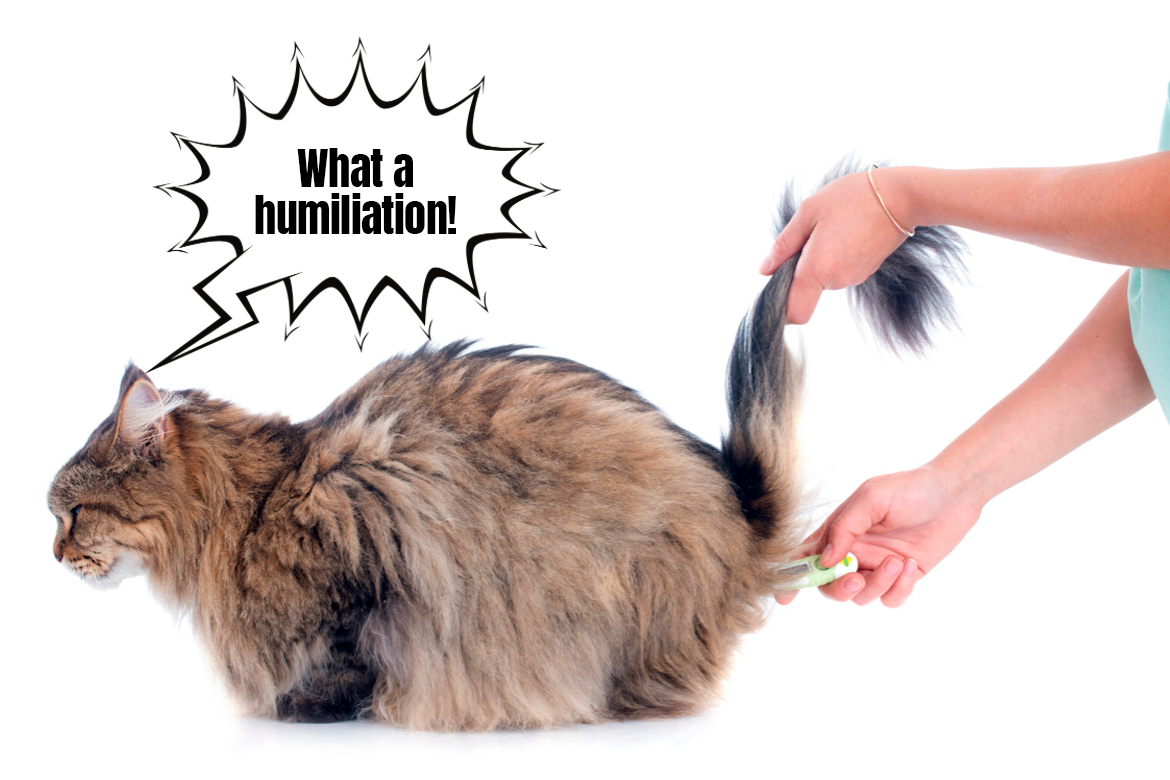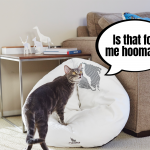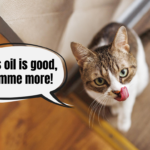April 24th was the World Veterinary Day. For all cat Carers it’s not just a great opportunity to show respect for the wonderful specialists who save our furry friends in every situation, but also a chance for a little, fabCat’s self-reflection. When was the last time you went for a regular health check-up with your pet dear fabCat? Do you know how to get around the vet office and tell the doctor the most important info on your cat’s health? What’s most important, do you have a plan of action for emergencies? Today we’re helping you prepare for a vet visit with your cat and checking what you need to remember about, health-wise, when you live with a fluffy companion under the same roof.
Preventative vet visits – what you should remember about?
Preventative care should be the main reason we’re visiting the vet office with our purring friends. It’s the type of visit that checks the general health condition of the pet and helps to find any worrying symptoms, changes or illnesses before they grow to be a bigger issue. Unfortunately, in reality many Carers visit the kitty doctor only once they see visible health problems. Do you, fabCat, remember about regular visits? Before you take your phone and quickly schedule an appointment in the cat clinic, let’s analyze what preventative care is really about and why we should remember about health check-ups on a regular basis.
- During a preventative check-up cats get a clinical examination – a check-up of their teeth, eyes, ears, their skin and coat condition, as well as their general mobility and possible pain symptoms.
- Among periodic tests that are recommended for cats are e.g. morphology with basic biochemistry, urine test, abdominal ultrasound and heart echo, and, at least once every 6 months, a stool test (done before making a decision to administer deworming drugs).
- Preventative examinations are performed on a cat with no clinical symptoms. It’s a form of a general health check-up and a kitty “inspection”. During the visit and tests it’s possible to find illnesses in their first stage, when cats usually don’t show many symptoms. The earlier the problem is found, the bigger chance to cure it quicker.
Ps. A year ago we prepared for you, fabCats, a detailed list of recommended and extra preventative tests for cats, as well as a list of predispositions for some illnesses among some cat breeds. We recommend you to visit the article in the link and check which tests are worth booking for your kitty in the near future.
Medical history – what to say during a vet visit?
Every visit to the vet office should begin with a medical history survey with the cat’s main Carer. It’s very important, as only the person who is with the cat daily and has the chance to observe them can tell the veterinarian some of the most important information about the cat’s recent behaviour. And it’s thanks to the talk with the Carer that the specialist is able to find out more about the animal, their living conditions, occuring problems and worrying symptoms. If it’s not an emergency visit, when the cat’s life is at stake, a medical history talk happens even before the doctor touches the pet. A practice like that gives the vet a chance to get to know the case and assess which elements of a cat’s behaviour and body should get the attention.
During the visit and medical history, you should talk about:
- observed symptoms (monitor your cat closely from the moment the symptoms start to be able to tell your vet what happens when and how often). If you have a problem with saying exactly what is wrong, it’s a good idea to capture it on video on your phone and show it to the vet during the visit.
- cat’s general health and state of being – their appetite, the amount of trips to the litter box per day, their stool consistency, possible problems when peeing, vomiting,
- past illnesses (chronic and treated – it’s worth having their medical book around),
- vaccinations and prevention,
- other pets’ health,
- cat’s habits (if they go out, what they eat, if they have contact with other animals, if they’re aggressive).
Never hide information from a veterinarian, even if they seem unimportant or we know they’re deemed not good (e.g. letting cats go outside freely). If your cat happened to eat human drugs, swallow an item or fall from a height, the vet needs to know it immediately. Events as such usually require urgent reaction.
Get ready for your cat’s clinical examination
When visiting a vet for a preventative health check-up with a cat, one may have the impression that the clinical examination doesn’t tell us a lot about the cat’s health. At this stage there’s no USG, RTG or blood tests – the animal is being touched by the vet from every angle and… that’s mostly it. In spite of appearances, the clinical examination brinds a lot of information and allows to find many problems within the cat’s bodily functions.
Don’t worry if the doctor is touching and auscultating your cat. A thorough check-up will help to examine the cat’s consciousness, their general condition, the state of their lymph glands and mucosae, the anal glands, as well as their teeth, ears, skin and fur. A stethoscope allows the vet to check the heartbeat and breath fluency. An important part of the clinical examination is taking the temperature (not so pleasant for a cat, as we have to put the thermometer up their bum :). Based on the collected data, the vet can decide if any other, additional screen tests are needed (e.g. USG).
Emergency vet visit – Sundays and holidays at the vet clinic
When your cat is showing symptoms of an illness, vomits and has diarrhea for a few days, doesn’t have appetite or limps on a paw, you should book a visit to your regular vet clinic, without waiting to see if things get worse or better. 24-hour clinics, who usually take patients on Sundays and holiday, are mainly for the animals who are in emergency situations – if during the long weekend your cat starts choking, is in a critical state or, for any reason, there’s a need for emergency specialist help, the 24/7 clinics are irreplaceable. In places like this you won’t get a full examination and diagnostics or shots, but first aid that saves your pet’s life. For this reason, we shouldn’t wait until the evening with a cat who’s been unwell since the morning.
Remember, dear fabCat, that every conscious Carer should have a phone number at hand for the closest 24/7 hour and holiday care vet clinic, as well as be able to get to it as soon as possible. In stressful situations looking through Google for the closest clinic or calling to many closed ones is a waste of your animal’s precious minutes of their life.
Get your cat used to being touched
As a finishing touch, we come to you with a short advice on getting your cat ready for any examination in the vet office. Cats can be difficult patients and it’s not that bad if their stress response is to freeze still like a rock – some can panic to the point of breaking away, scratching, hissing and biting, which makes it difficult for both the vet and the Carer. It’s worth working on the cat’s behaviour at home, by yourself as well as with help of your friends. During play or a cuddling session, you have a great chance of making a cat used to the touch – you can massage and gently squeeze their paws, check their ears, practice opening up the mouth and touching the gums (also a great practice for easier everyday teeth care). The kitty should be awarded by every positive reaction, as there is no effective work without a tasty little bribery in the feline world.
How often do you find yourself at the vet clinic with your kitty, fabCat? Are they usually preventative check-ups, vaccinations and control visits, or maybe emergency visits in critical conditions? In our myKotty team we definitely stand on the side of prevention – after our difficult health experiences with Louis and Figo – our beloved cats who are unfortunately no longer with us – we know how important it is to find problems early and take the necessary treatment.
Tell us in the comments if you’ve found your trusted vet already, or are you still on the search for a good vet clinic. To every kitty reading this, we wish you great health and to the veterinarians, we thank you for everything you do for the animals!




